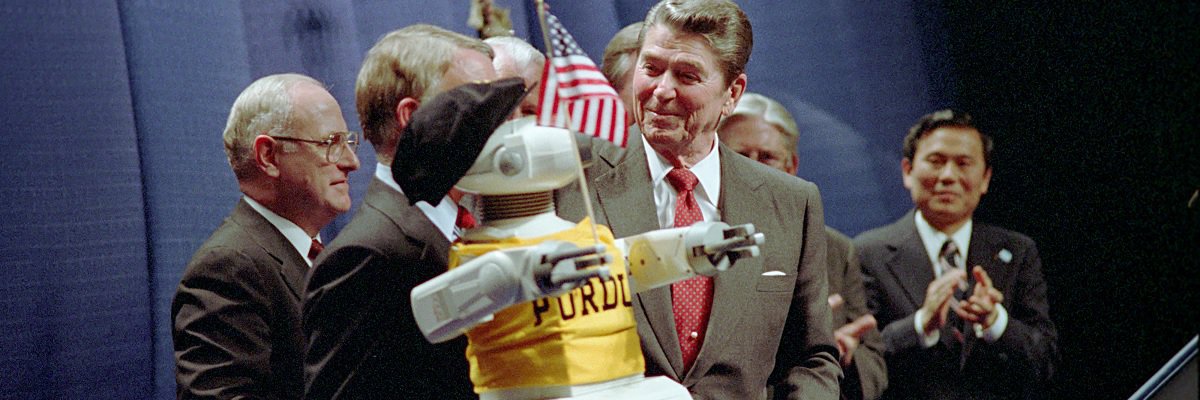Now that the dust has settled the USDA has been crowned champion of our 2016 FOIA March Madness, MuckRock staff is taking a look back at how each individual bracket fared. This is FOIAcenter.
Admin It to Win It - Allan Lasser
Four agencies, 25% of the bracket’s contestants, still have not acknowledged our request. Three others have not yet responded with their processing guides. That makes almost half of agencies in this bracket non-responsive.
For agencies that did respond, almost all of them responded with a link to their website. Only three agencies responded with documents: Federal Aviation Administration, General Services Administation, and Department of Agriculture.
The results of this bracket are unsurprising, actually. When agencies did respond, they responded within a reasonable amount of time with the most helpful information they could provide; when they didn’t, it was only because they’re still processing the request.
Unresponsive agencies like Department of Energy and Department of State have an average response time in the hundreds of days.
(Common) Good Sports - Beryl Lipton
Comprised primarily of the agencies of the arts, letters, and health sciences, the (Common) Good Sports’s champion, the National Institute of Health was well-deserving, though the Centers for Disease Control and Prevention were also worthy contenders. Both provided extensive standard operating procedure manuals for FOIA officers that give us a sense for the series of actions that go into a FOIA request from the processing side.
For example, did you know that if you submit a request on government materials or using government resources, NIH will send it back to you?

And CDC’s guide has a series of screenshots and flow charts to help make their points extra clear.

Only half of agencies in this bracket have completed their requests, most with a link to their online guidelines to FOIA requests, which were weighted less heavily than more specific attachments.
A quarter of agencies here still haven’t acknowledged the requests, two of which are White House offices still subject to FOIA - Office of National Drug Control Policy and Privacy and Civil Liberties Oversight Board.
As always, non-email submissions put agencies and requesters at a disadvantage. The FDA still hasn’t acknowledged our request, though it seems as though their fax issue is understood - their website indicates that requesters who are having trouble sending a fax should give them a call.

MuckRock keeps track of responses, follow-ups, and when faxes generally fail, but regular requesters might not think it a problem with the fax machine and one with the agency, another reason agencies should be implementing email submission options in the 21st century.
The Protection (b)Racket - Michael Morisy
I personally feel that there were some tough officiating calls here that worked against Army’s hard work and proactive disclosure. What more can you ask than the agency publish the material online before you ask? To me, that should be an instant win. Though it would help if the link they provided worked.
Way to go Army! Especially given the agency’s global nature, they have an incredibly complex job (I’ve had requests tasked out to Afganistan), and they always perform it with professionalism and courtesy. They were also the first agency to agree to be interviewed about their FOIA practices. And in general, the whole Department of Defense falls under the same guidelines, which are public here, although how well they perform does vary.
There’s another agency’s performance that I feel like I need to call out: The Bureau of Prisons. Here, I felt the officiating broke in their favor, which is unfortunate because they are the worst.
First, their quick initial communication was due to an autoresponse that includes precious little useful information.
And because of that autoresponse, which used to be much longer and crash email systems, they advanced to Round 2.
They follow up with that by saying that the request — asking the FOIA office for manuals and guidance on how it processes FOIA, which should literally be the nearest material possible — is a “complex request” that will take nine months to finish.
But then it gets better. Or worse, depending on if you love America. Because the Bureau of Prisons was the only one of 64 agencies to reject the request, saying that they have no written FOIA procedures except for the database software they use, and any other guidance, if it exists, is somehow exempt:
“To the extent these e-mails constitute guidelines, they would be exempt from release under 5 U.S.C. § 552(b)(5).”
Workers’ Comp(etition) - JPat Brown
With a whopping seven agencies that have still yet to acknowledge our request - 44% of the bracket and a third of all our March Madness requests - labor was ironically the least responsive of the divisions, even beating out the “favored to be least favorite” Security (b)Racket.
To be fair, the problem appears to be at least in part due to technical difficulties - today we received an email from the National Labor Relations Board, which expressed concern that communications weren’t going through:

Looking into it, we found that the requests had been sent via the fax line they listed on their FOIA homepage. It’s just that, well, fax machines are terrible.
The only thing more terrible than a fax machine is a FOIA portal, which so far has been NLRB’s only other option. But hey, there’s always snail mail. Phew. FOIA-ing labor agencies is a lot of work.
Credit where it’s due, the agencies that did complete the request gave us some of the most comprehensive releases we saw in the whole tournament …
And we found out that the U.S. Copyright Office handles FOIA through their “PIE” (Public Information and Education) office, which is adorable …

It’s just a shame that their efforts are overshadowed by the inaction of others. Better luck next year.




